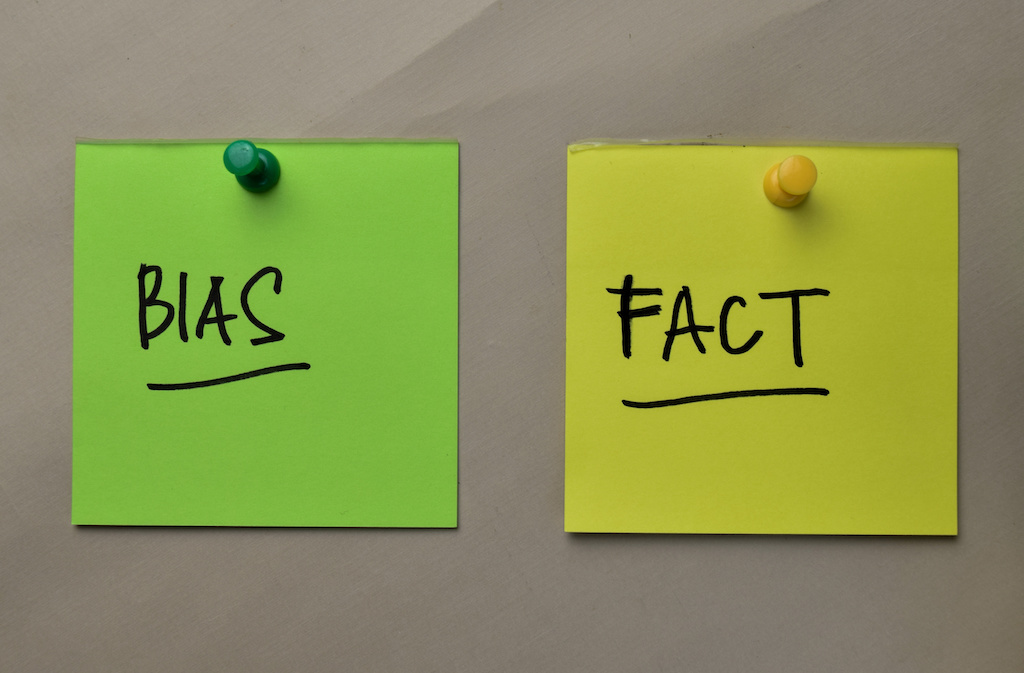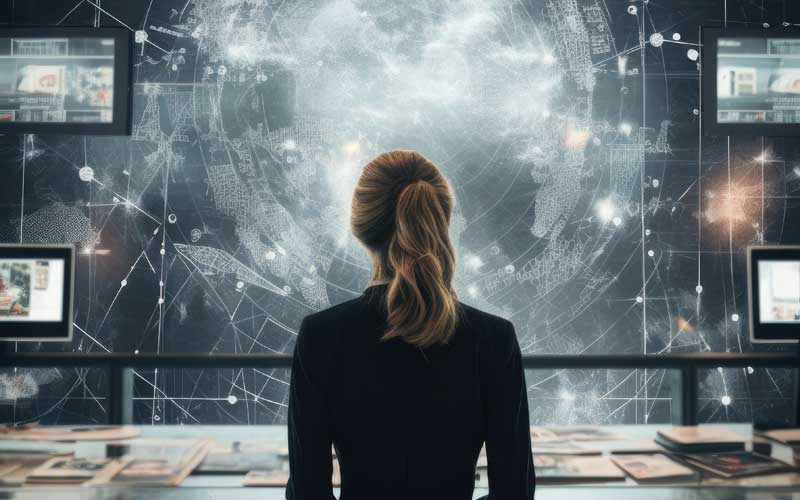American Public Education, Inc. (APEI) Chief Marketing Officer, Beth LaGuardia Cooper, contributes this guest blog post about confirmation bias. Beth and I have worked together for 16 years. I consider her an expert about the nuances of social media platforms, their methods of engagement, and their use for marketing and content distribution.
I believe it’s fair to say that many of us were hopeful about the possibilities for this New Year. Unfortunately, the events of last week remind us that we cannot leave 2020 behind and get on with positive progress, personally or professionally, without acknowledging the very challenging work we have ahead of us to do our part to resolve the underlying factors fueling this acrimonious social landscape. Unifying our country is dependent upon dealing honestly and holistically with a number of social issues. This post touches on one of the underlying barriers to our success: confirmation bias.
Some experts are, sadly, less than shocked by the activities at the Capitol. The perfect storm of physical isolation, social media, and the growing influence of powerful individuals and corporate media who hold dear currencies such as relevancy and monetization are all contributing to a dangerous dynamic. This confluence of factors is fueling a new level of confirmation bias in our country that is edging out civil dialogue, unification, and measurable social progress.
By confirmation bias, I mean the collection, weighting, and/or interpretation of evidence to match our current perspective and the tendency to surround one’s self with those who agree with our perspective.
This is a tendency of the human DNA, one that we need to continually examine in ourselves and our environment. No one is immune to this tendency. This is not unlike the discovery process that goes into researching a hypothesis and realizing that we are subconsciously gravitating toward evidence that supports that hypothesis and discounts contrary views.
Today, social and corporate media have driven our confirmation bias to a new level. This goes beyond gaining awareness of our own direct actions to seek similar perspectives and avoid opening ourselves to other perspectives. Both mainstream and independent media are motivated monetarily to feed us more content that mirrors other content we have consumed and engaged with, including opinions disguised as fact.
We feed that as consumers by engaging more with content that is “like” our expressed opinions (for more thorough coverage of this topic, I recommend reading LikeWar: The Weaponization of Social Media by P.W. Singer and Emerson T. Brooking), whether it’s promoted by corporate media outlets we gravitate to or through opinions of our social media followers or friends. We welcome curation and personalization of content, but that personalization can create isolation and extremism, particularly when you factor in the media’s need to promote content that drives more engagement. Content that gets more engagement evokes emotions—anger being at the top.
We’re surrounded by content that has the potential to create profound and sometimes angry reactions. Combine that with the unchecked voice and the anonymity that one achieves (or thinks that one can) on the Internet, and the pot is stirred. Add today’s technology that amplifies the speed and reach of content sharing that is served up in our social media echo chambers, and the pot is boiling.
Thanks to the widespread acceptance of the Internet, we have media sources that do not try to be objective and are incentivized to increase their reach by separating people and adding flames to the fire. Communities of like-minded individuals fester with those who support their narrative but, in doing so, move further away from any possible engagement in civil discourse with counterparts from the other side. Opinions appear to differ wildly with no compromise in sight if you get all of your information from the rhetoric curated for you on social media platforms; and the truth is that the physical isolation of communities due to the COVID-19 pandemic doesn’t help matters.
The situation is attracting attention from psychology and social experts looking at what transpired at the Capitol and bringing accountability to a larger issue that has been bubbling for some time. It is not going away without a painful pivot in direction from those with the power to do something about it. It will require a commitment from all of us who consume information.
What will incentivize those in power to increase civil connections between people with different opinions so we can have productive dialogue, understand our differences, and fix some of the deep fractures that have occurred? What can we do as individuals to recognize and resolve the negative impacts of institutional and social platforms that have also connected us in meaningful and positive ways to each other and have fueled so many societal advancements?
These forces are not all bad, but they are contributing to a dangerous slippery slope if we as a society are unable to see beyond confirmation bias and use our platforms and our voices to come together. Some of the views and actions of people with voices are reprehensible. We don’t need to acknowledge and understand everyone just because they have a voice and a Twitter account.
But we’re drowning out the forums where civil discourse and consensus-building are valued above all. And these very forums may just be the key to progress and healing.











